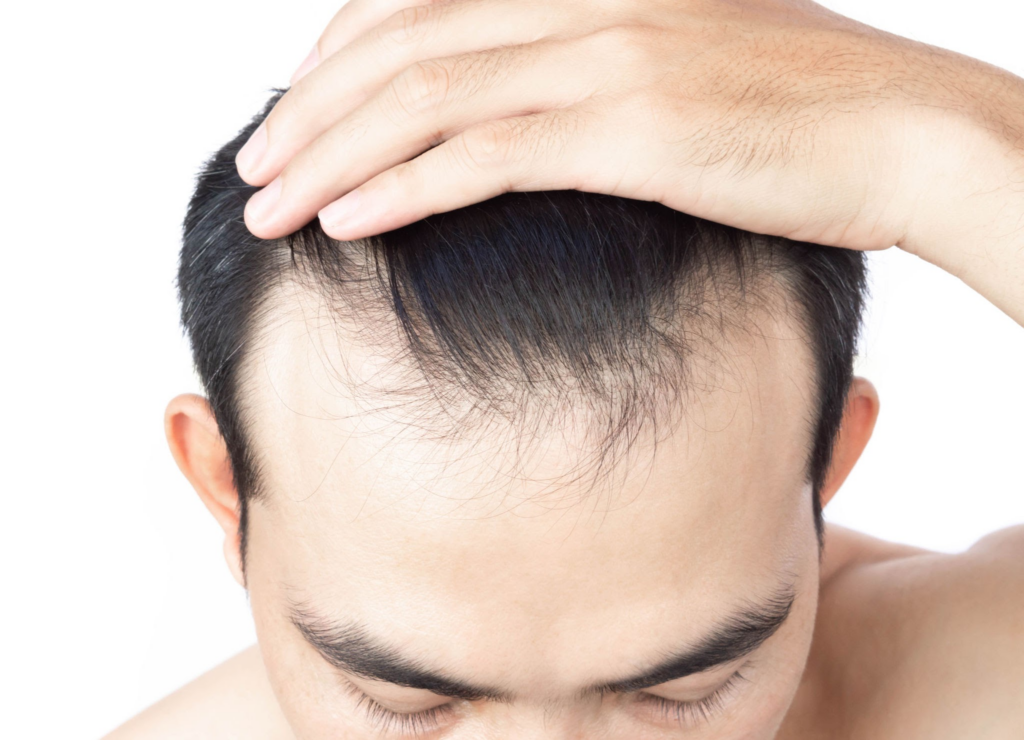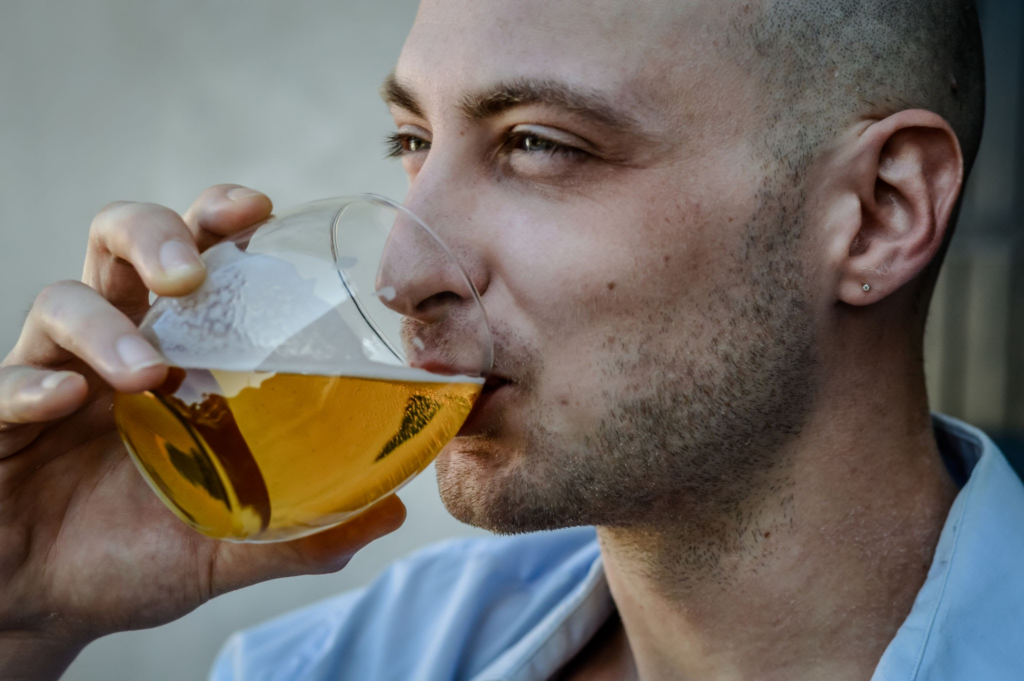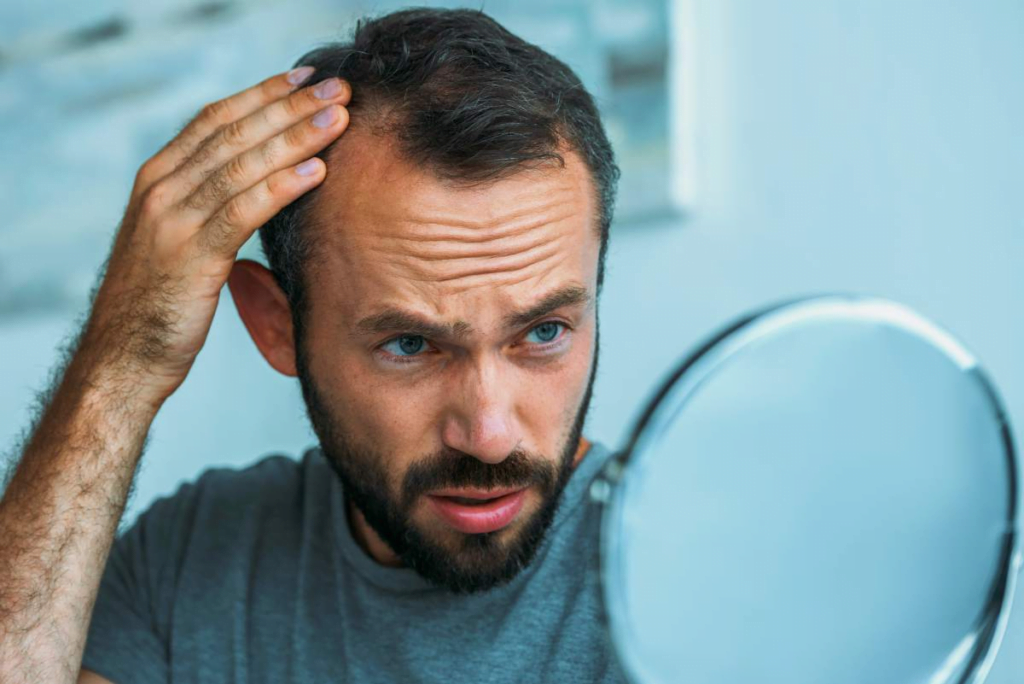Hair loss is a common concern for both men and women. While genetics play a significant role, many lifestyle factors can contribute to thinning hair and hair loss. One such factor often questioned is alcohol consumption. Can excessive drinking lead to hair loss? In this comprehensive guide, we delve into the science behind the connection between alcohol and hair health, exploring the mechanisms at play and providing valuable strategies to promote healthy hair growth.
İçindekiler
Understanding Hair Growth Phases: The Root of the Matter
Hair follicles, tiny pockets in the scalp, are responsible for hair growth. Hair goes through a well-defined cycle consisting of three distinct phases:
- Anagen (Growth Phase): This is the active growth phase, lasting anywhere from 2-7 years for scalp hair. During this time, the hair follicle rapidly produces new hair cells.
- Catagen (Transition Phase): A short transitional phase lasting a few weeks, where hair growth slows down and the hair follicle detaches from the blood supply.
- Telogen (Resting Phase): The resting phase, lasting around 3 months, where the hair remains attached but doesn’t grow. The hair eventually sheds to make way for a new hair to begin the growth cycle again.
A healthy scalp maintains a balanced ratio between these phases. However, certain factors, including alcohol consumption, can disrupt this delicate balance and contribute to hair loss.

How Does Alcohol Affect Hair Growth?
While there’s no direct link between moderate alcohol consumption and hair loss, excessive and chronic drinking can indirectly impact hair health in several ways:
- Nutrient Deficiencies: Alcohol is a diuretic, causing frequent urination which can lead to dehydration. Dehydration can impact the scalp and hair follicles, hindering their ability to function optimally. Furthermore, excessive alcohol consumption can interfere with nutrient absorption. Essential vitamins and minerals like biotin, zinc, and iron are crucial for hair growth. Chronic alcohol abuse can lead to deficiencies in these nutrients, disrupting the hair growth cycle and promoting hair loss.
- Hormonal Imbalances: Alcohol can disrupt the delicate balance of hormones in the body, including those that regulate hair growth. For example, excessive alcohol consumption can increase estrogen levels and decrease testosterone levels. These hormonal shifts can contribute to hair loss patterns typically associated with male or female pattern baldness.
- Increased Inflammation: Chronic alcohol consumption can contribute to systemic inflammation in the body. This inflammation can affect the scalp and hair follicles, hindering hair growth and potentially leading to hair loss.
- Poor Diet and Lifestyle Choices: Alcohol abuse often coincides with unhealthy lifestyle choices. Poor diet, lack of sleep, and increased stress, all common companions of excessive drinking, can further exacerbate hair loss.

Combating the Effects: Strategies for Healthy Hair Growth
If you’re concerned about the impact of alcohol on your hair health, here are some strategies you can incorporate into your routine:
- Moderate Alcohol Consumption: The key lies in moderation. If you choose to drink alcohol, do so in moderation. Limiting alcohol intake can significantly reduce the negative effects on your overall health, including hair health.
- Nutrient-Rich Diet: Prioritize a balanced and nutritious diet rich in fruits, vegetables, whole grains, and lean proteins. These foods provide the essential vitamins and minerals your body needs to support healthy hair growth. Consider incorporating biotin-rich foods like eggs, nuts, and avocados, as well as zinc-rich foods like oysters, pumpkin seeds, and chickpeas, into your diet.
- Hydration is Key: Drinking plenty of water throughout the day is crucial for overall health and hair health. Adequate hydration ensures proper blood flow to the scalp, promoting optimal hair follicle function and hair growth.
- Manage Stress: Chronic stress can wreak havoc on your hair health. Implement stress-management techniques like yoga, meditation, or deep breathing exercises to keep stress levels in check.
- Supplements: Consider consulting a healthcare professional about hair loss concerns and whether hair loss supplements containing biotin, zinc, or iron might be beneficial for you.
- Healthy Hair Habits: Develop healthy hair care habits. Gentle cleansing, avoiding harsh chemicals or heat styling tools, and getting adequate sleep are all essential for promoting healthy hair growth.
When to Seek Professional Help
If you’re experiencing significant hair loss despite implementing these strategies, consult a trichologist, a hair loss specialist, or a dermatologist. They can assess your individual situation, diagnose the underlying cause of your hair loss, and recommend appropriate treatment options. Early intervention is crucial for managing hair loss effectively.
Additional Considerations
It’s important to note that certain medications and medical conditions can also contribute to hair loss. If you suspect these might be playing a role, consult your healthcare provider. They can help identify the cause and recommend suitable treatment options.
Remember, maintaining healthy hair is a holistic approach. By prioritizing a balanced diet, staying hydrated, managing stress, and adopting healthy hair care habits, you can support strong, healthy hair growth, even if you occasionally enjoy an alcoholic beverage.
The Science Behind Hair Loss: Exploring the Research
While the link between excessive alcohol consumption and hair loss is well-established, ongoing research continues to shed light on the specific mechanisms at play. Here’s a glimpse into some key studies:
- A 2020 study published in the Journal of Investigative Dermatology explored the association between alcohol intake and hair growth. Researchers observed that chronic alcohol consumption disrupted the hair growth cycle in mice, leading to a decrease in the anagen (growth) phase and an increase in the telogen (resting) phase. This ultimately resulted in hair loss.
- A 2019 review published in the International Journal of Trichology investigated the link between alcohol and nutritional deficiencies. The review highlighted how excessive alcohol intake can hinder the absorption of essential nutrients like biotin, iron, and zinc, all of which are vital for hair growth.
These studies, along with others, solidify the understanding that excessive alcohol consumption can negatively impact hair health.
Addressing Common Myths and Misconceptions
Several myths and misconceptions surround the topic of alcohol and hair loss. Here, we clarify some of the most common ones:
- Myth: All Alcohol Consumption Causes Hair Loss: Moderate alcohol consumption, within recommended guidelines, is unlikely to cause significant hair loss.
- Myth: Gray Hair is Caused by Alcohol: While stress can contribute to graying hair, alcohol consumption itself isn’t directly linked to hair color changes. Genetics play a primary role in hair graying.
- Myth: Certain Types of Alcohol Cause More Hair Loss: The type of alcohol consumed (beer, wine, spirits) doesn’t significantly impact hair loss. The overall quantity of alcohol ingested is the primary concern.

Conclusion: Does Alcohol Consumption Cause Hair Loss?
While excessive alcohol consumption can negatively affect hair health, it’s important to remember that hair loss can have various contributing factors. Genetics, age, underlying medical conditions, and certain medications can all play a role.
The good news is that by adopting a holistic approach that prioritizes a healthy lifestyle, you can significantly improve your hair health and promote strong, beautiful hair growth. This includes maintaining a balanced diet, staying hydrated, managing stress, getting enough sleep, and practicing gentle hair care habits.
If you’re concerned about hair loss, consult a healthcare professional or a hair loss specialist. Early diagnosis and intervention are key to effectively managing hair loss and achieving optimal hair health.
Hairtrans.com was founded by world-famous plastic surgeon Dr. MFO, who is an expert in facial feminization or facial masculinization surgeries, and is managed under his leadership. Would you like to have a hair transplant under the coordination of a plastic surgeon with many years of experience?
Whether you are a trans woman or a natural born male or female, if you are looking for the best hair transplant, contact us now.
Frequently Asked Questions (FAQ) About Alcohol and Hair Loss
Here are some of the most frequently asked questions regarding alcohol consumption and hair loss:
- Q: How much alcohol consumption is considered excessive in terms of hair health?
A: The recommended daily alcohol limits set by health organizations provide a good guideline. However, individual factors like genetics and overall health can influence susceptibility. If you’re concerned about the impact of alcohol on your hair, discuss it with your healthcare professional.
- Q: Will quitting alcohol completely reverse hair loss?
A: In some cases, quitting alcohol can lead to hair regrowth, especially if the hair loss was caused by deficiencies or hormonal imbalances triggered by excessive drinking. However, the extent of regrowth depends on the severity and duration of hair loss, as well as individual factors. Consulting a dermatologist or trichologist can help determine the potential for regrowth.
- Q: Are there any hair loss treatments that specifically target alcohol-induced hair loss?
A: There aren’t any specific treatments solely for alcohol-induced hair loss. However, addressing the underlying cause (excessive alcohol consumption) is the first step. Additionally, hair loss treatments typically focus on promoting hair growth and improving scalp health, which can benefit hair loss regardless of the cause. These treatments may include topical medications, minoxidil, low-level laser therapy, or hair transplantation (in severe cases).
- Q: What are some alternatives to alcohol if I enjoy socializing but want to prioritize hair health?
A: There are many enjoyable social activities that don’t involve alcohol. Explore non-alcoholic beverages like mocktails, sparkling water with fruit infusions, or herbal teas. You can also focus on activities that don’t center around drinking, like attending sporting events, concerts, or board game nights.
By addressing these frequently asked questions, we aim to provide comprehensive information and empower you to make informed decisions regarding alcohol consumption and its impact on your hair health. Remember, a healthy scalp is the foundation for healthy hair growth.


